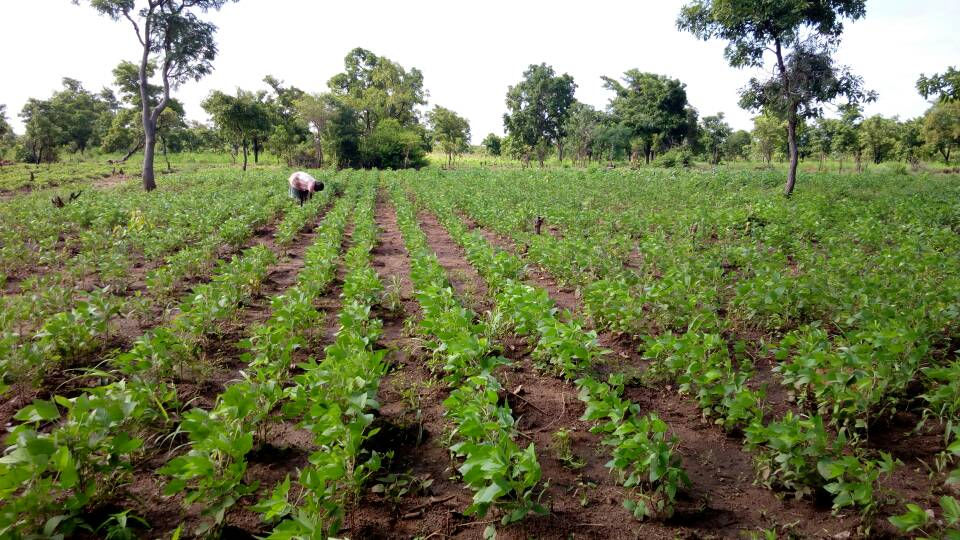
Who we are
Innovations for Sustainable Rural Development (ISRuDev) is a membership-based organization, made up of 31 women groups and 1 youth group, operating in the Wa West District of Upper West Region. ISRuDev started as a Youth Club in the Wa West District in the year 2013. Under the name 'Green Youth Club', it undertook activities including tree planting, and anti-bush burning campaigns. Its scope of activities was later widened to include VSLA training for women groups and facilitating linkages for access to services and inputs. In 2017 it got registered as a membership-based CBO, bringing together all 31 women groups and 1 youth group under one umbrella body. In 2022, ISRD joined the Ghana Federation of Forest and Farm Producers to widen opportunities available to members and also gain more leverage to create more impact on the environment and livelihoods of its members.The mandate of ISRuDev is strengthening the capacities of its member groups to engage in profitable green businesses and advocate for sustainable, equitable access to forest and farm products. Our objectives include the following; to increase access of members to financial services, through the VSLA Model, to enhance members’ livelihood activities; to increase the farm productivity and resilience of members through the promotion of conservation and climate smart agricultural activities for improved food security; to build the business capacity of member groups through provision of entrepreneurship training, linkages to appropriate end markets for soya beans and shea nuts; to advocate for women’s access to productive lands, to improve farm incomes for women and youth through the promotion of agroforestry (with cashew) and all-year-round irrigated production.
ISRD has a total membership of 946, put into 31 women groups and 1 youth group. Each of the groups has a five-member executive committee that oversees its affairs. These are the Chairperson, the vice-chairperson, the secretary, the organizer and treasurer. These are all females from the women group. Also, all secretaries and organizers are youth.
Vision Statement
To provide Technology-Based solutions, create opportunities and positively transform society.
Mission Statement
ISRD will achieve its vision through; “empowering rural communities with the needed capacities and facilitate the use of information technology solutions in addressing Rural Development Challenges”
Target
ISRD, through its maiden initiatives, wishes to contribute its bit to satisfying the urgent needs of member women FBOs and other smallholder farmers in rural communities within the Upper West Region and beyond. This will further boost food security in the country and provide people with sustainable livelihood opportunities.
Strategic Objectives
The strategic objectives of ISRD take a concise reflective view of the Sustainable Development Goals, thus concentrating on thematic areas relevant to SDGs 2, 4&12 as follows;
-
Eradicating poverty and hunger from smallholder farmers in rural communities through Agriculture.
-
Preserving the natural environment using demonstrations and the introduction of environmentally sustainable livelihood opportunities.
-
Strengthening effective collaborations with relevant stakeholders and development actors for sustainable development.
-
Provision of Innovative Educational Improvement Models and IT capacity support for quality education and health service provision.
Thematic Areas
The core of our operations revolves around these thematic areas;
-
Agriculture, Climate and Food Security
-
Youth Empowerment
-
Maternal and Child Health
-
Information Technology and Education.
Additional Services
As part of our scope and span of operations, we also provide other services in the following areas;
-
Project Management Capacity Training
-
Skills training on Best Agronomic Practices for farming
-
Building Mobile Data Systems
-
Project Evaluations
Senior Management
ISRD is governed by a 11 member Executive Council who have the fiduciary role of ensuring that the organization remains relevant and true to its vision. These include 10 elected members from among executives of the 31 member women FBOs. The Executive Director is a non-elected member and secretary to the Executive Council. The day-to-day operations of the organization are managed by s secretariat of appointed staff headed by the Executive Director. The other staff of the secretariat include the Admin/Finance Officer, the Business Development Officer, Field Operations Officer, and Monitoring, Evaluation, Research and Learning (MERL) Officer. We also have an ICT consultant who works on part-time basis. Below are profiles of the key members of the Secretariat.

Chair Person of Executive Council
Mr. Stephen Kabange, CA.

Dong-Uuro Philemon Puordeme, CDPM.
MPhil. Environment and Resources Management.

Admin/Finance Officer
Madam. Labiibatu Braimah

BDO
Hon. Maxwell Kpetaa Maal-Eng

Field Operations Officer
Albert Needo
